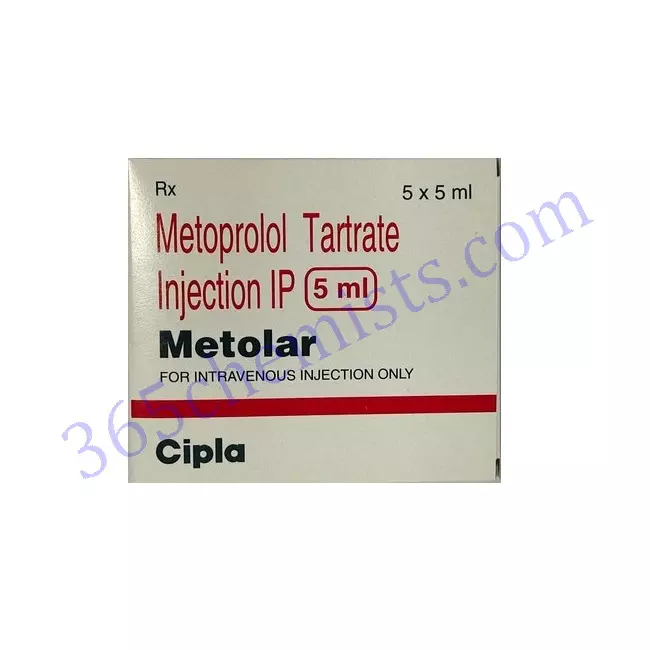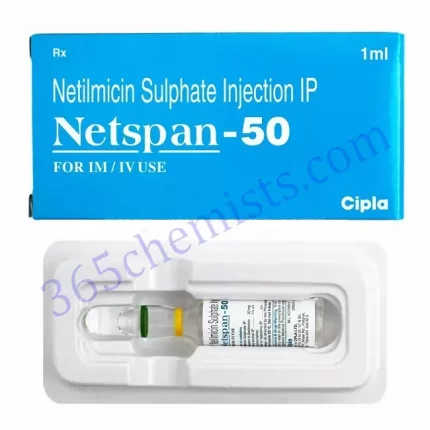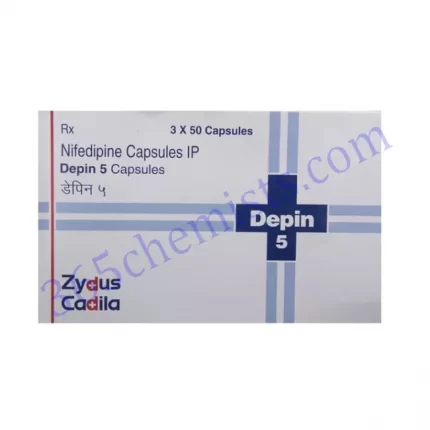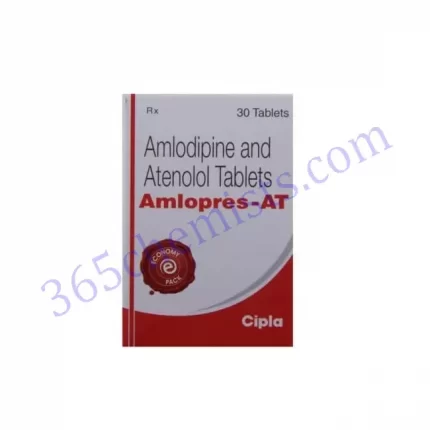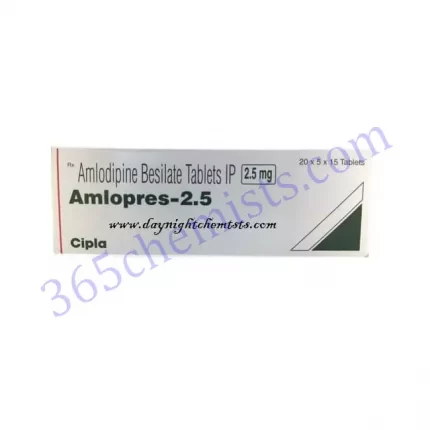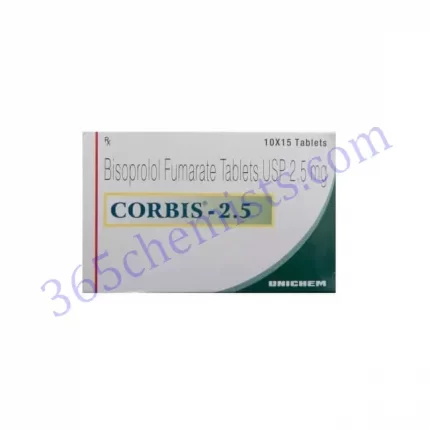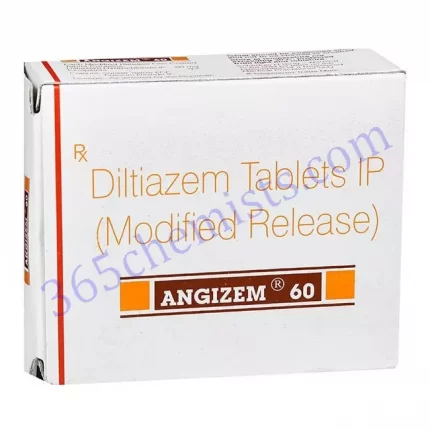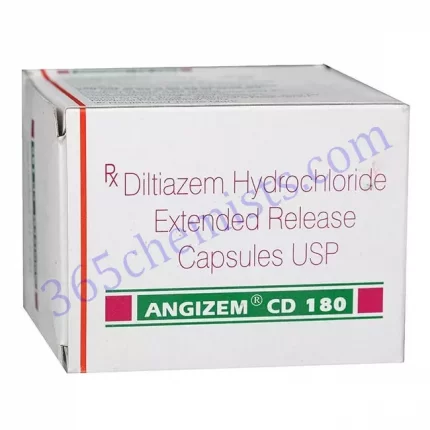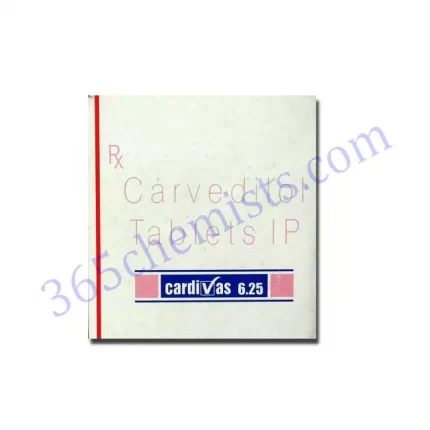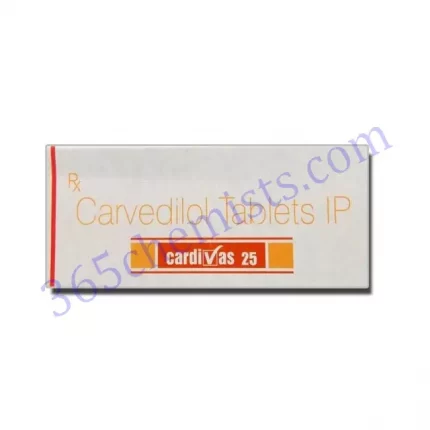Introduction
Metoprolol Tartrate is contained in a medication known as Metolar Injection, which comes in a concentration of 1 mg per 5 ml. Injection is the primary method of administration, and the primary application is for the management of various cardiovascular conditions. In this explanation, we will discuss the most important aspects of Metolar Injection, such as its indications, its mechanism of action, its dosage, its side effects, and the factors that must be taken into consideration.
Indications
It is common practise to recommend Metolar Injection for the treatment of a variety of cardiovascular conditions. These conditions include hypertension (also known as high blood pressure), angina pectoris (also known as chest pain), and certain arrhythmias (also known as abnormal heart rhythms). It is taken to assist in the control of heart rate and to lessen the workload that is placed on the heart, which ultimately results in an improvement in overall cardiovascular function.
Mechanism of Action
Beta blockers are the category that Metolar Injection falls under as a type of medication. It achieves its effects by inhibiting the activity of certain chemicals within the body that are responsible for elevating both the heart rate and blood pressure. Metolar Injection helps to lower blood pressure and improve blood flow by inhibiting beta receptors in the heart and blood vessels. This helps to slow down the heart rate, which reduces the force of contractions, and relaxes the blood vessels, which ultimately results in lower blood pressure.
Related Product
Metol XL 25 Tablet
Metol XL 50mg tablet
Metolar XR 12.5mg Capsule
Metolar XT 25 Tablet
Metolar TL 50 Tablet
Metolar TL 25 Tablet
Metolar AM 50mg Tablet
Metolar AM 25mg Tablet
Metol 25mg Tablet
Metolar 100mg Tablet
Metolar Injection
Dosage and Administration
It is possible for the dosage of Metolar Injection to change depending on the particular condition that is being treated as well as the response of the individual patient to the medication. In most cases, a trained medical professional in a clinical or hospital setting is the one to carry out the procedure. The prescribing doctor will decide on the dosage, as well as the frequency of administration, based on a number of factors, including the seriousness of the condition, as well as the patient’s general state of health.
Side Effects
Metolar Injection, like any other medication, carries the potential to cause adverse effects in some patients. The following are examples of common side effects that may occur while taking this medication: fatigue, dizziness, lightheadedness, nausea, and cold hands or feet. These adverse effects are typically mild and only temporary; however, it is imperative that you contact your healthcare provider immediately if they continue or become worse. There is a remote possibility that the patient could experience more serious adverse effects, such as a sluggish heart rate, difficulty breathing, or allergic reactions. If you experience any symptoms that are severe or concerning, you should seek medical attention right away.
Important Considerations
Before beginning treatment with Metolar Injection, it is essential to discuss any pre-existing medical conditions, allergies, or medications that you are already taking with your healthcare provider. Metoprolol Tartrate may interact with a number of conditions as well as medications; however, your healthcare provider is the best person to help you determine which treatment method is best suited to your individual circumstances.
Precautions and Warnings
It is essential, prior to using Metolar Injection, to take certain precautions and be aware of any potential warnings that may be associated with its application. These are the following:
- Reactions of an allergic nature: If you have a history of allergy to Metoprolol Tartrate or to any other beta blockers, you should inform your healthcare provider. Symptoms of an allergic reaction can range from relatively mild ones like hives and itching to more severe ones that require prompt medical attention.
- Metolar Injection is primarily utilised for the treatment of cardiovascular conditions; however, it is imperative that extreme caution be exercised in the event that you suffer from certain heart conditions. If you have a previous history of heart failure, heart block, or any other heart-related conditions, you should let your healthcare provider know.
- Beta blockers such as metoprolol tartrate, which are commonly used to treat asthma and other respiratory conditions, have the potential to make symptoms of these conditions significantly worse in some patients. Metolar Injection may not be appropriate for you based on your medical history, so it is important to discuss this with your healthcare provider.
- Diabetes: Metoprolol Tartrate can mask certain symptoms of low blood sugar levels, such as increased heart rate and tremors. This is especially useful for people who have type 2 diabetes. If you have diabetes, it is important that you keep a close eye on your blood sugar levels and discuss your condition with your primary care physician.
- Pregnancy and breastfeeding: It is essential to have a conversation with your healthcare provider before using Metolar Injection if you are pregnant or breastfeeding while using this medication. They are going to weigh the potential drawbacks against the potential advantages, and then make a decision based on that information.
- Interactions between medications: Be sure to tell your doctor about any supplements, over-the-counter medications, and herbal remedies that you are currently using. Metoprolol Tartrate may have an interaction with other medications, such as calcium channel blockers, digoxin, and other beta blockers. If this happens, the dosage may need to be adjusted or the patient should be closely monitored.
Storage and Handling
The instructions for storing Metolar Injection that were provided by the manufacturer or a healthcare professional should be followed to the letter. In most cases, it should be kept in a dark, cool, and dry location that is shielded from direct sunlight and out of the reach of children. If the medication’s packaging is damaged in any way, or if the expiration date has already passed, do not use the medication. Any medication that has been used beyond its expiration date or is no longer needed should be disposed of in the appropriate manner.
Conclusion:
Metolar Injection is a medication that is used for the management of various cardiovascular conditions. It contains 1 mg of metoprolol tartrate in 5 ml of solution. It does this by blocking beta receptors in the heart and blood vessels, which helps to bring the heart rate under control, lower blood pressure, and improve cardiovascular function overall. It is essential to administer the medication exactly as directed by your doctor, take the prescribed dosage, and discuss any worries or adverse effects with your primary care physician. Metolar Injection has the potential to be an effective tool in the management of cardiovascular conditions if it is used correctly and closely monitored.

